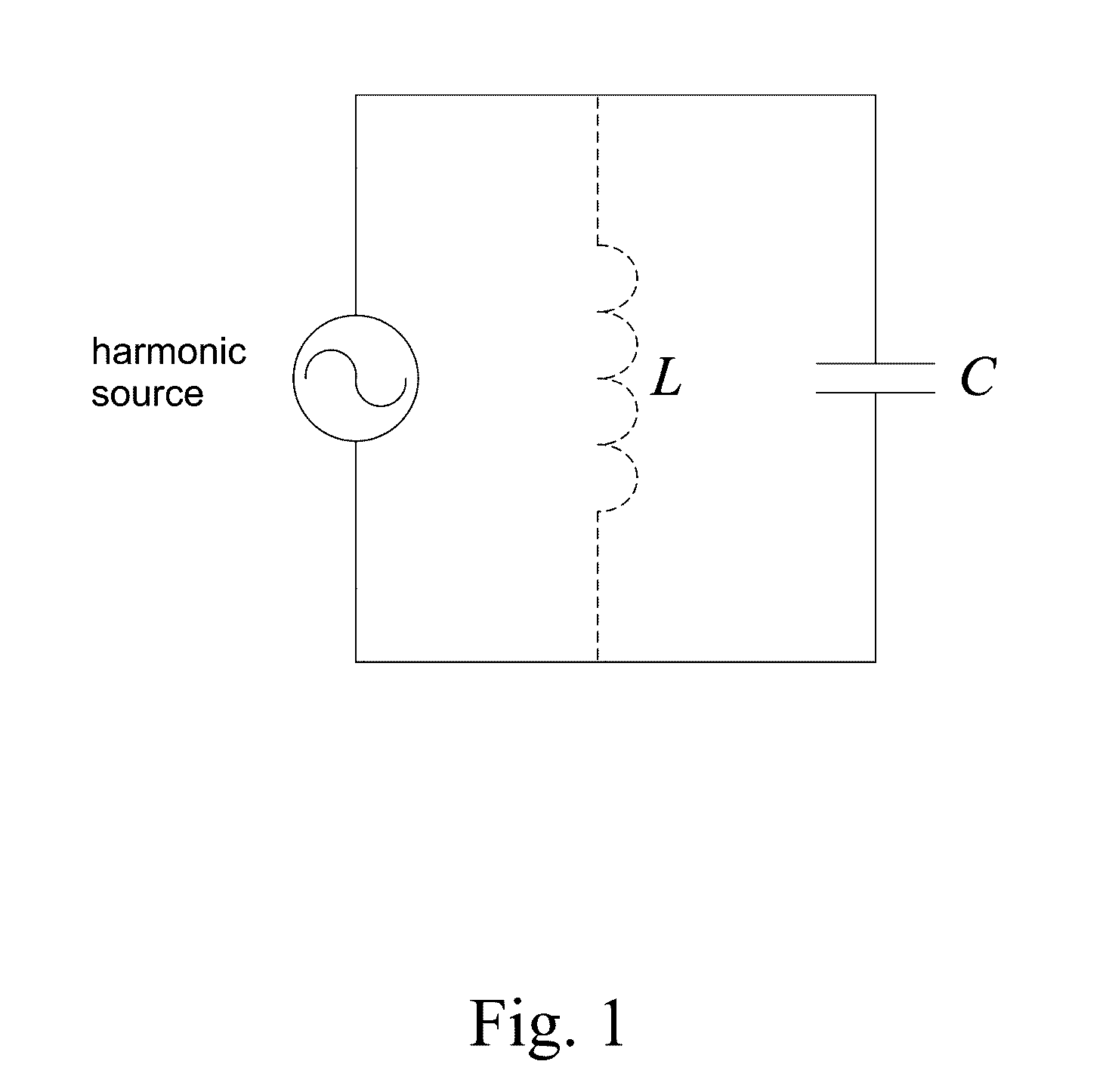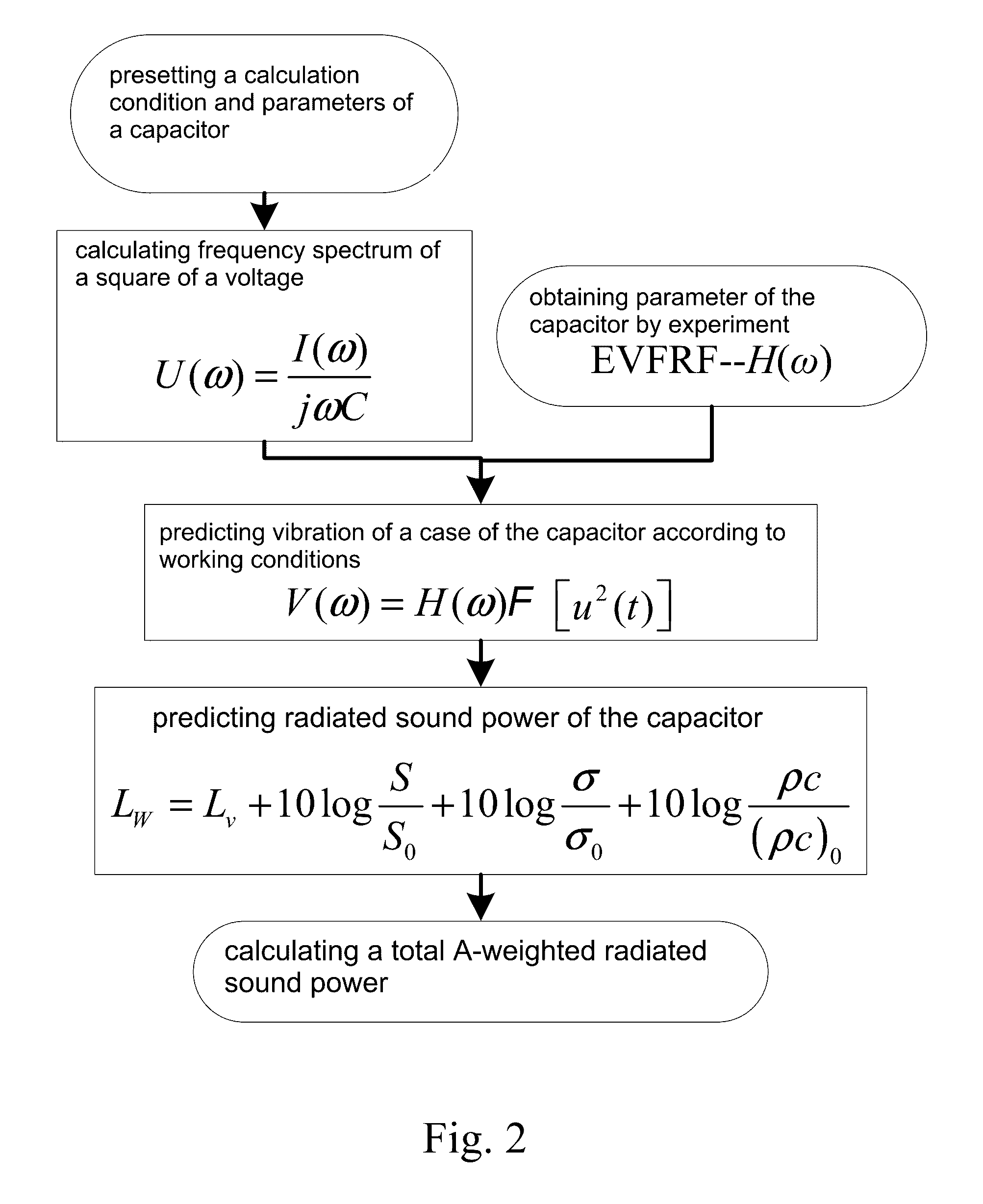Frequency-sweep experimental method for predicting noise of power capacitor
a power capacitor and experimental method technology, applied in capacitors, instruments, measurement devices, etc., can solve the problems of lack of complete theoretical basis and overall understanding, failure to provide a specific method for calculating noise of capacitors, and inability to achieve a specific method. achieve the effect of accurate noise prediction and sufficient investment in noise reduction
- Summary
- Abstract
- Description
- Claims
- Application Information
AI Technical Summary
Benefits of technology
Problems solved by technology
Method used
Image
Examples
Embodiment Construction
[0034]Further description of the present invention is illustrated combining with the accompanying drawings and the preferred embodiments as follows.
[0035]Referring to FIGS. 1-2, a frequency-sweep experimental method for predicting noise of a power capacitor comprises: obtaining an electromechanical vibration frequency response function of a capacitor to be tested by a frequency-sweep experiment, and calculating noise level of the capacitor;
[0036]wherein the frequency-sweep experimental method for predicting noise of the power capacitor specifically comprises steps of:
[0037](1) loading the capacitor with a sine voltage excitation having a loading frequency value of ½ to 50 times of a power frequency in sequence, at an increase of half of the power frequency for each time, and measuring vibration velocity at various points on a case of the capacitor comprising steps of:
[0038]dividing a surface of the case of the capacitor with evenly distributed square grids with identical size, where...
PUM
 Login to View More
Login to View More Abstract
Description
Claims
Application Information
 Login to View More
Login to View More - R&D
- Intellectual Property
- Life Sciences
- Materials
- Tech Scout
- Unparalleled Data Quality
- Higher Quality Content
- 60% Fewer Hallucinations
Browse by: Latest US Patents, China's latest patents, Technical Efficacy Thesaurus, Application Domain, Technology Topic, Popular Technical Reports.
© 2025 PatSnap. All rights reserved.Legal|Privacy policy|Modern Slavery Act Transparency Statement|Sitemap|About US| Contact US: help@patsnap.com



